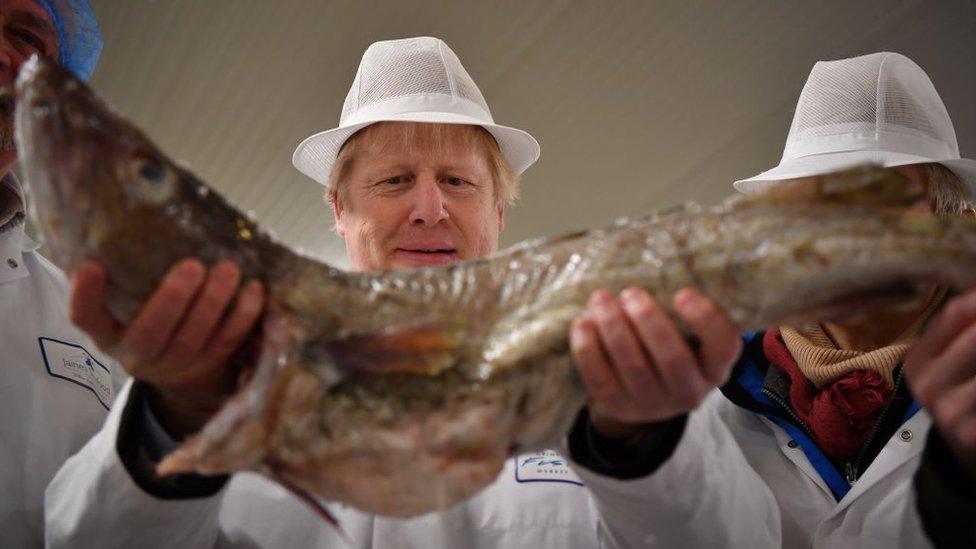Brexit: UK has to 'knuckle down' and get a trade deal with EU - Irish PM
- Published
- comments
Martin: A breakdown in talks between Europe and the UK would be "very negative".
The UK has to "knuckle down" to get a post-Brexit trade deal with the EU by the end of the year, the Irish Taoiseach Micheál Martin has said.
He also said failing to reach an agreement would be "very, very damaging all round".
The UK and EU are in talks but big differences remain on fishing access and rules on state help for businesses.
Boris Johnson has insisted there is a deal "to be done" and that the "outlines" of an agreement are clear.
The UK officially left the EU on 31 January, but has been in a transition period since then - following many of the bloc's rules while a trade agreement is negotiated.
That period is due to end on 31 December and if a deal is not reached, the UK will trade with the EU on World Trade Organization rules - leading to tariffs being introduced on many imports and exports, which could push up costs for businesses and consumers.
Speaking to the BBC, Irish prime minister Mr Martin warned that failure to get a deal would be "ruinous" for the UK and that Ireland would suffer.
"We've all had a very significant shock to our economic system because of Covid-19 - the last thing we need now across all of our respective economies is a second major shock," he said.
He said US President-elect Joe Biden would introduce a "greater thrust towards multilateralism" and that the UK should follow his "orientation" by working with the EU.
Mr Martin dismissed suggestions the EU had not compromised in the talks and said he believed a deal could still be reached.
'Niggling doubts'
He also warned the UK government to be "very careful that they do not do anything that could destabilise the politics of Northern Ireland" as it leaves the transition period.
Throughout the Brexit process the UK and EU have insisted they want to avoid a hard border - with cameras and border posts - between Northern Ireland and the Republic of Ireland.
Mr Martin said failure to reach a deal could create "tensions that are unnecessary" and that there was a danger these concerns were not being taken seriously enough.
He cited the UK government's Internal Market Bill as an example. The bill is designed to enable goods and services to flow freely across England, Scotland, Wales and Northern Ireland after 1 January - when the post-Brexit transition period runs out.
It gives the government the power to change aspects of the EU Withdrawal Agreement, a legally binding deal governing the terms of Brexit made earlier this year.
UK ministers say the bill would provide a "safety net" in case the EU interprets the agreement, in particular the section on Northern Ireland, in an "extreme and unreasonable" way.
The UK government has said the bill protects peace but Mr Martin said it did not "take on board the implications for politics within Northern Ireland itself".
He added that the bill had created "niggling doubts" over whether the UK could be trusted.
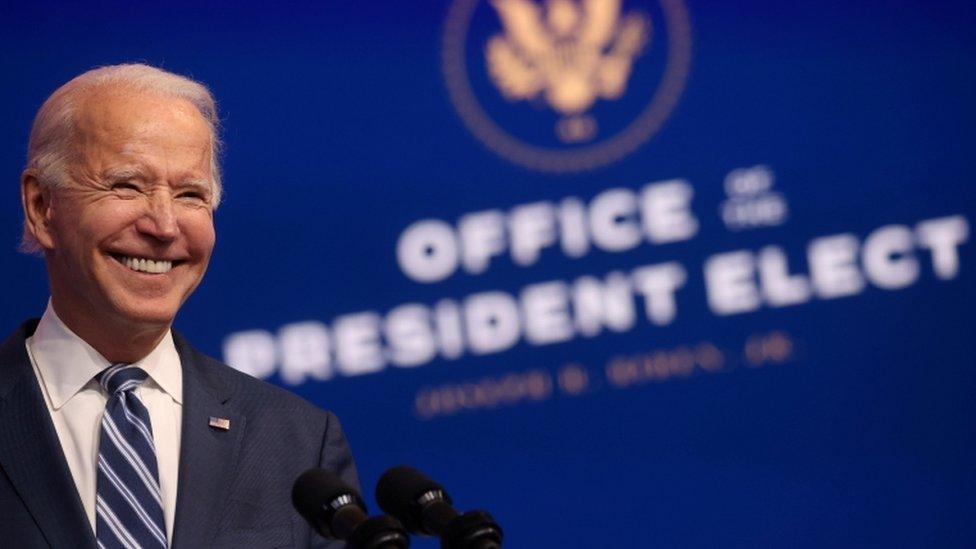
Joe Biden has said any UK-US trade deal had to be "contingent" on respect for the Good Friday Agreement
Mr Martin also called Mr Biden "probably the most Irish of presidents" since John F Kennedy.
He said Mr Biden was "very committed" to the Good Friday Agreement - the peace deal that among other things established power-sharing in Northern Ireland - and that he did not want Brexit to undermine it.
Asked if he thought the new American president would be closer to the UK or Ireland, he said "I don't buy that simplistic narrative. He loves Ireland and he has great time for the UK."
Speaking for the UK Labour Party, Shadow Cabinet Office Minister Rachel Reeves said failing to agree a deal with the EU would be "a disaster for already stretched businesses and workers".
Ms Reeves said the UK government had to "listen to industry, get prepared and ensure their incompetence doesn't disrupt businesses and cost jobs".
- Published31 July 2020
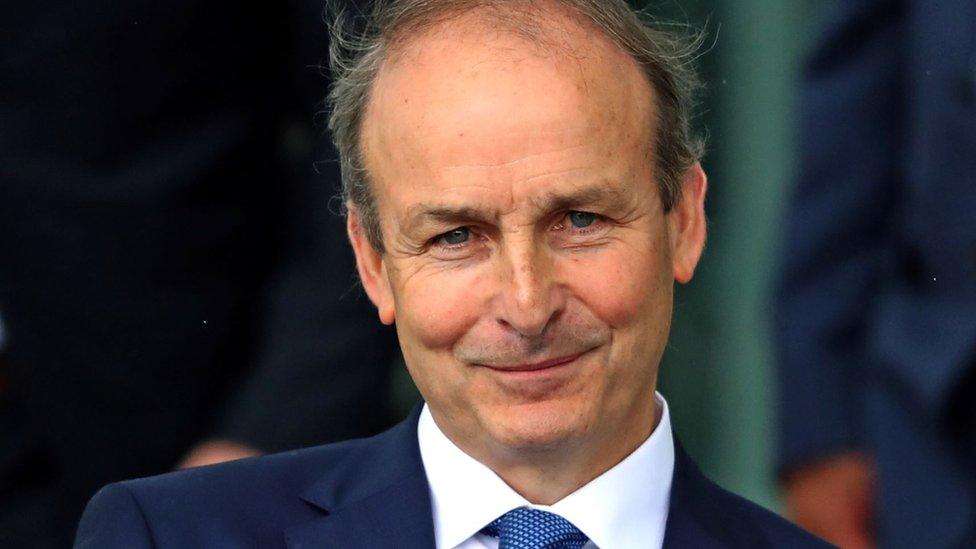
- Published22 October 2020
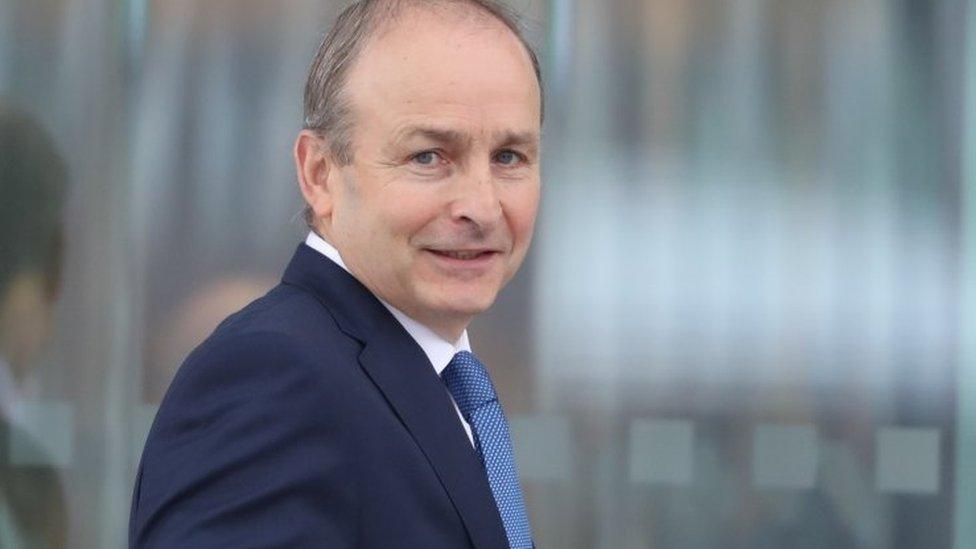
- Published10 November 2020
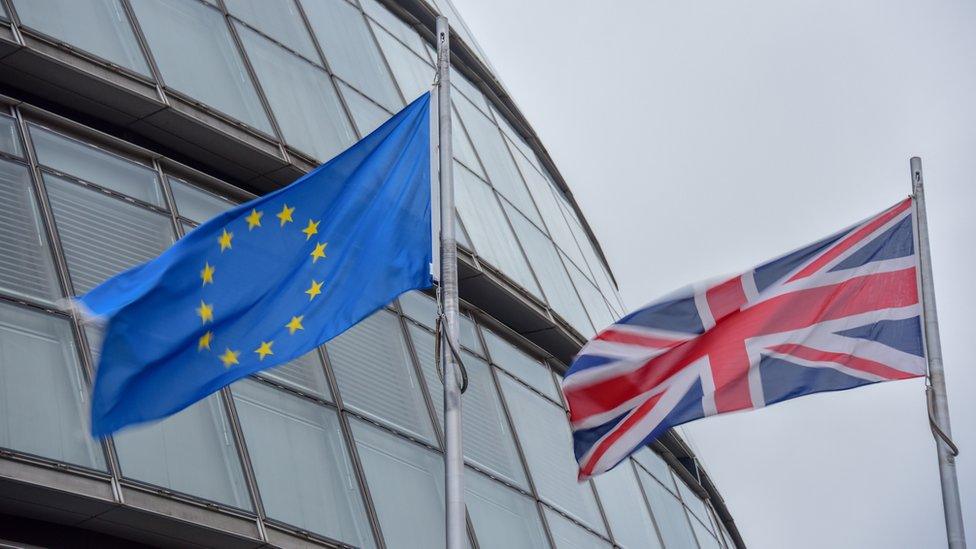
- Published8 December 2020
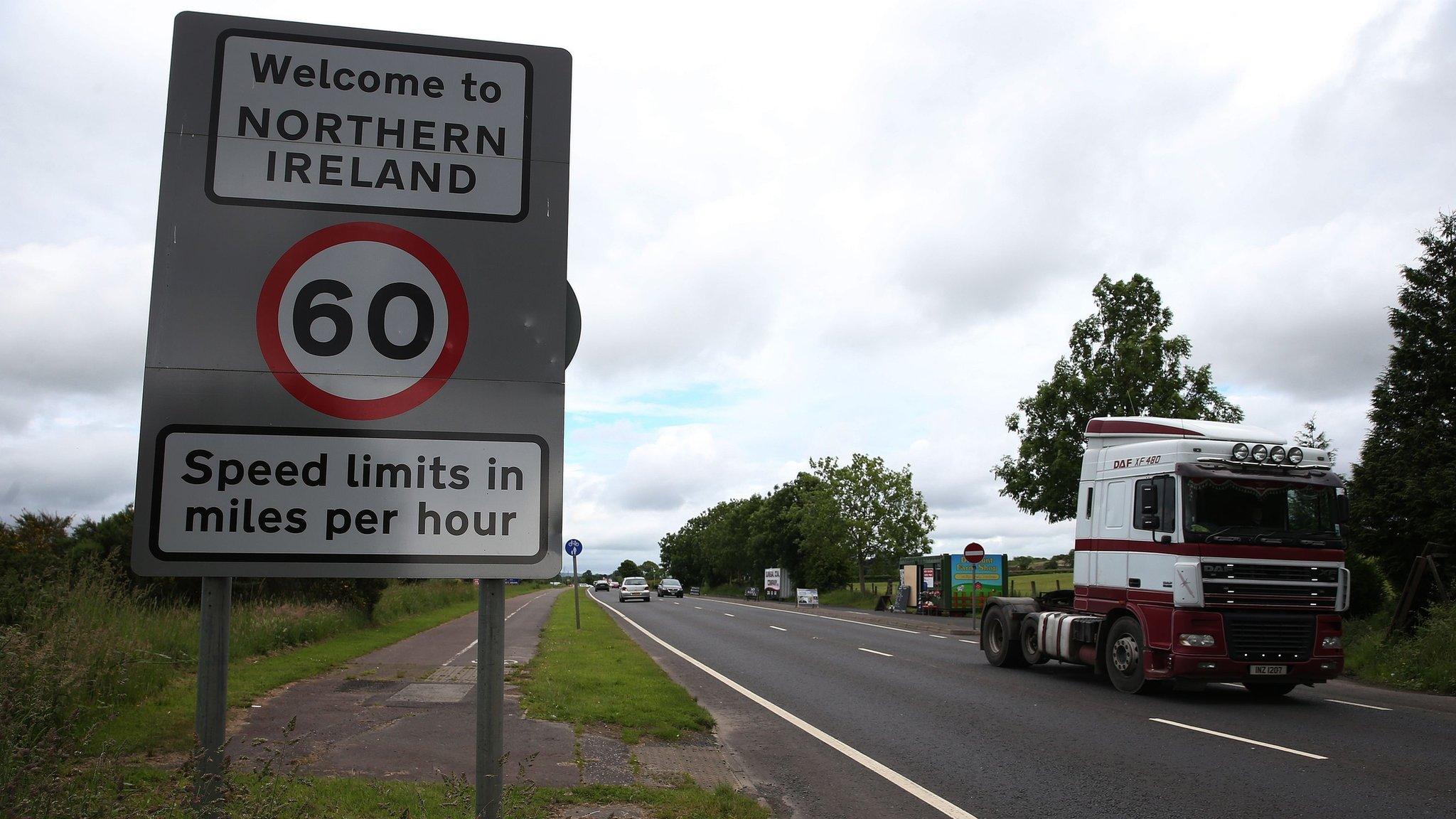
- Published18 December 2020
